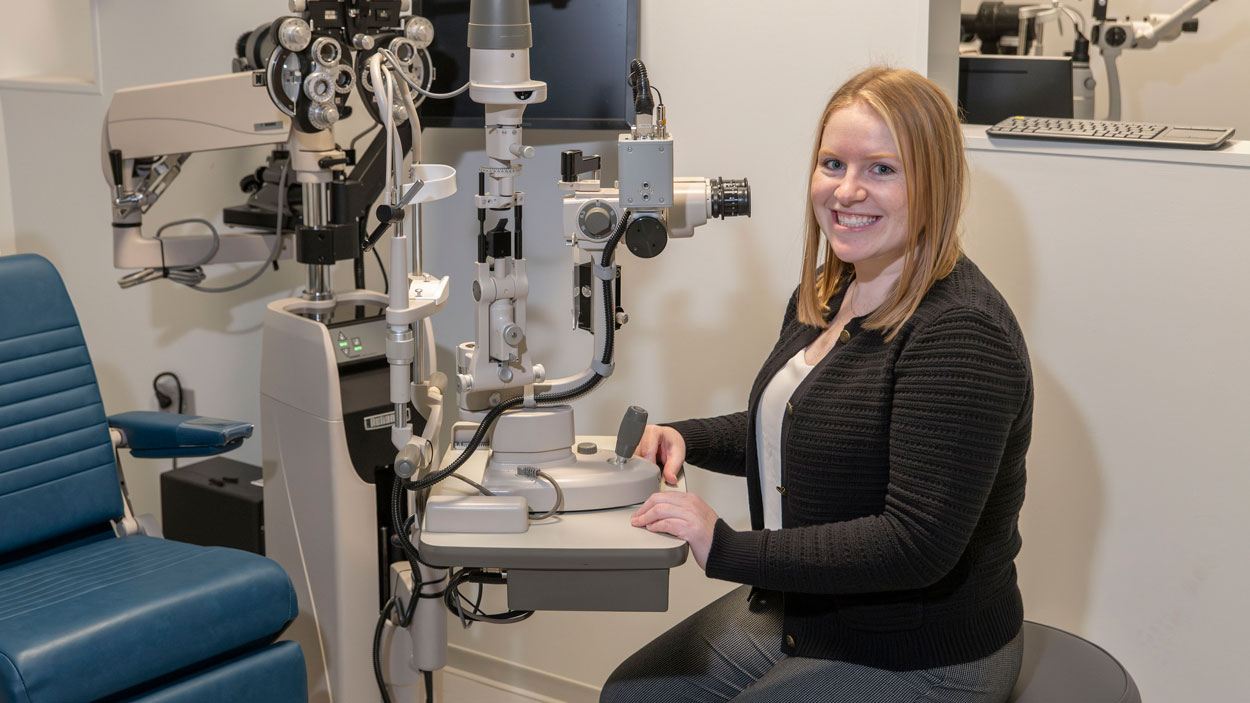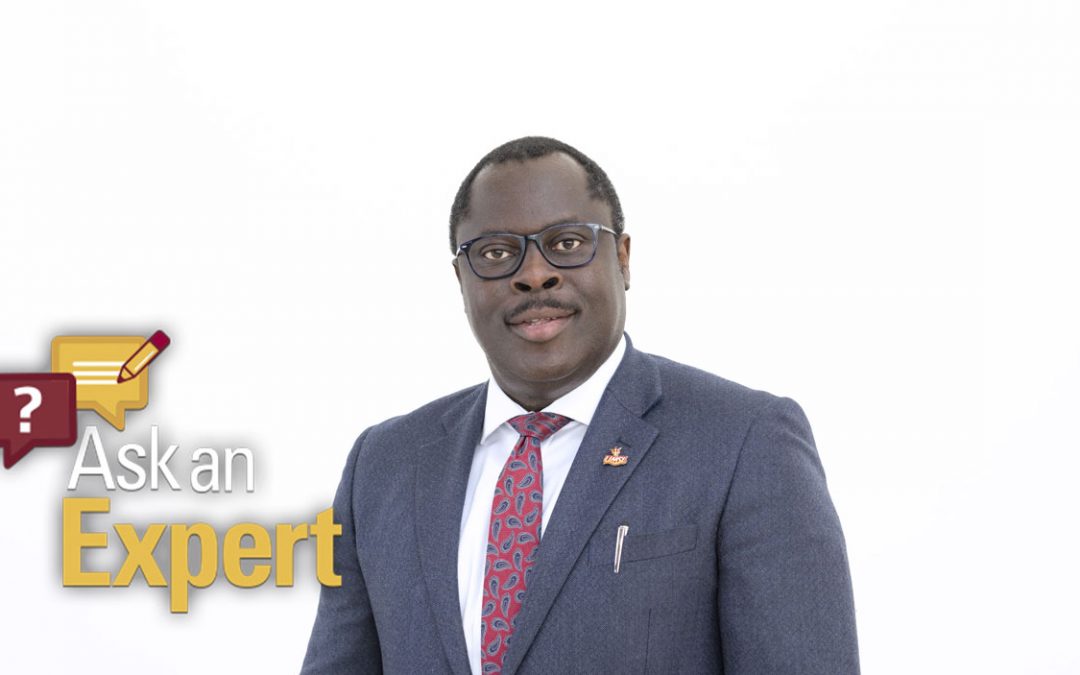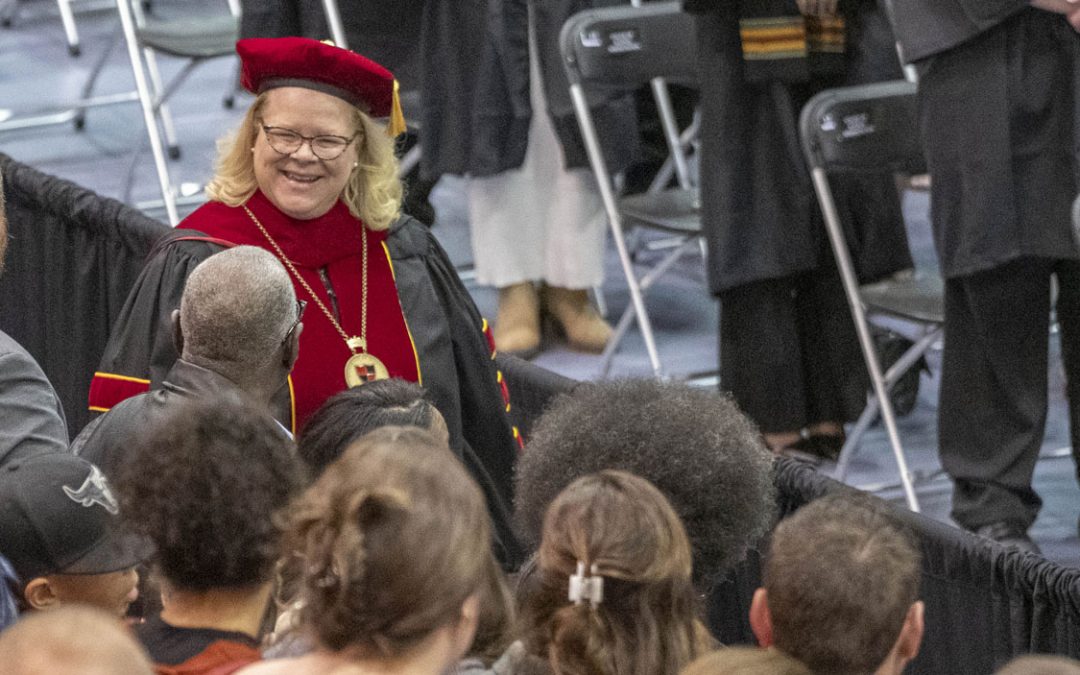
Optometry student Megan Corcoran was one of 18 students from across the country recently named to the new student advisory board of Women in Optometry, an online publication that offers insight from licensed optometrists about their work and lives. (Photo by Derik Holtmann)
Megan Corcoran remembers walking to class with a friend at the University of Missouri–Columbia one day and realizing that they had no idea how the human eye works.
While studying for her bachelor’s degree in biology, Corcoran knew she wanted to pursue a career in health care but hadn’t decided exactly which field was right for her. That conversation about the eye got her wheels turning. Although she herself had worn contacts and glasses for years, she felt like her general science courses hadn’t covered much about the eye, and she was eager to learn more.
“I started doing research about the eye, and I was just amazed by how much goes into it – the science behind your eyes,” said Corcoran, now in her second year in the College of Optometry at the University of Missouri–St. Louis. In December, she was one of 18 students from across the country named to the new student advisory board of Women in Optometry, an online publication that offers insight from licensed optometrists about their work and lives.
To further explore her interest in optometry while in undergrad, Corcoran joined the pre-optometry club at Mizzou – she was soon asked to run for office – and also shadowed an optometrist at the practice she went to growing up.
“I just love the people that are in optometry,” she said. “You get to actually influence and help people one on one; many people have a personal relationship with their optometrist and try to see the same optometrist for many years. You really get to know your patients and you also get to be a part of the community where you work, which I really like. I feel like I get to make a difference. It may seem like something small, glasses or contacts, but it affects a lot of people.”
When it came time to apply to optometry schools, Corcoran interviewed at and visited multiple schools across the country, but none made her feel quite as welcome as UMSL. Even though she had to conduct the interview over Zoom due to the COVID-19 pandemic, she still felt readily accepted and welcomed by staff and faculty in the College of Optometry.
“That stood out to me a lot,” she said. “It made me feel like, ‘Wow, I really want to be here.’ The professors really care about their students. And it’s not necessarily that other schools don’t, but this program does a great job at showing it.”
Now two years into the program, that sentiment still rings true. Corcoran enjoys the low student-to-faculty ratio in UMSL’s College of Optometry, which she said has allowed her to get to know all of her professors on a deeper level and to feel more comfortable approaching them when she has issues or concerns.
“I’ve met most of my professors and most of the faculty now that I’m in my second year, and everyone does really care,” she said. “None of the students get left behind because everyone does know each other; no one slips through the cracks.”
And as of Dec. 1, Corcoran is now sharing some of her experiences as an optometry student with those practicing in the field as part of Women in Optometry’s new student advisory board. Designed to help the publication be more representative of ODs who will be entering the workforce in the next few years, the new board will allow current optometry students to share their perspectives, enthusiasms and concerns with working ODs.
“The publication wanted a group of students to serve as well to discuss issues that may be important to other female optometry students such as student debt, mentorship, preparation for practice,” Corcoran said. “I think that this board is important so that female optometry students are represented and optometrists that are already practicing can see what issues students are going through today; some of the issues may be the same and some of the issues may be different.”
Corcoran was drawn to the networking and mentorship opportunities afforded by the organization and the opportunity to connect with others in the field on both personal and professional matters. Growing up, she sometimes tagged along with her mom to meetings for a women in business organization and saw firsthand the impact that such organizations can have. Now, she’s excited to continue learning through both Women in Optometry and the College of Optometry.
“Through school, we learn a lot about science and medical knowledge behind the eye, but there’s a lot more that goes into being a successful optometrist,” she said. “In my opinion, you have to educate yourself and take it into your own hands to kind of learn that information. This was a great opportunity to learn even more about how I can be successful now and then in the future as well.”
Media Coverage
Women in Optometry














